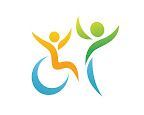October is National Disability Employment Month
"Rachel, this next assignment requires that you recite something from memory. Do you want to try and do that?"
Rachel looked deeply at me and I could tell she was really pondering what I was asking her to consider. Then, with a look of defiance, she replied, "I want to be able to do that, Mr. B."
Fighting back tears I didn't even know I had for this young lady, I reached out my hand and we shook on it.
"Deal," I said. "Let's make it happen."
From there, we worked really hard. I think Rachel worked harder than any student I have ever seen. Rachel came in during office hours. She came in before school. She practiced writing the monologue out. We created mnemonic devices to help her attach words and phrases to things she already knew. We talked in-depth about the story behind her monologue and what was so important about it. I got to watch her excitement grow as she slowly but steadily recited Shakespeare--from memory.
On her day of choosing, we arranged to have her parents come to school to be present when she recited her monologue, which she did flawlessly. Everyone in the room burst out with cheers and clapping when she finished her last sentence and took the grandest bow you ever did see. There was not a dry eye in the house.
While Rachel will probably always suffer from cognition issues, the point is that given time, supports, and encouragement, our kids can do almost anything. Often, just a little support can result in incredible accomplishments. The data on the "help that helps" shows us that when we have two adults in our lives who we can lean on when times are difficult, that our bodies are two and half times more healthy and have eight times improved mental health. Think about that--eight times!
As we celebrate National Disability Month, think about all of the ways that we can help all students access our school content and participate fully in school. Building a strong relationship allows us to tap into amazing brainpower that none of us knew we had. And, you will be amazed at what students with disabilities are able to do.
And if Rachel's story isn't inspiring enough, take a look at what these Paralympics athletes are capable of achieving. Grab a box of tissues, you are going to need it (in a deeply good way).
If you have success stories of helping students with disabilities achieve in our classrooms, please add a reply to this post to share with our colleagues. You never know if your shared idea grows into an amazing tree of resilience for others.
Resources:
Ideas for Educators and Youth Service Professionals from the Department of Labor
State of Oregon First Employment Success Stories




Comments
Post a Comment